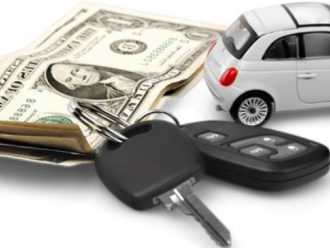How to save your budget during a crisis?
Many auto-owners one way or another one day think about buying a new car.
Yes, you will say, my car is still reliable, but years of operation are taking their toll and a car with a mileage of more than 100,000 km is already beginning to require additional investments in repair and maintenance.
Not everyone can afford to buy a new car and here in practice there are two possible options:
1. Continue the minimum necessary repair and maintenance of your old car
2. Choose a more recent car with a lower mileage and a earlier release year on the secondary market.
And in the first and second case – you do not guarantee yourself a 100% guarantee that the car will be reliable, and the main agregates (engine, transmission) and other mechanisms will work smoothly.
The most expensive part of the car is certainly the main units: the engine and gearbox.
How to save your budget during a crisis?
Many auto-owners one way or another one day think about buying a new car.
Yes, you will say, my car is still reliable, but years of operation are taking their toll and a car with a mileage of more than 100,000 km is already beginning to require additional investments in repair and maintenance.
Not everyone can afford to buy a new car and here in practice there are two possible options:
1. Continue the minimum necessary repair and maintenance of your old car
2. Choose a more recent car with a lower mileage and a earlier release year on the secondary market.
And in the first and second case – you do not guarantee yourself a 100% guarantee that the car will be reliable, and the main agregates (engine, transmission) and other mechanisms will work smoothly.
The most expensive part of the car is certainly the main units: the engine and gearbox.
Engine:
Many of you usually make an annual (or, depending on the mileage, more often) oil change in the engine and a general technical inspection of the main running units. But here it is necessary to understand that engine oil does not provide 100% protection of friction pairs from wear and over time, bullies appear, the gap between the cylinder wall and the piston increases (due to metal wear), piston rings are coked – and all this leads to a loss of power, an increase in fuel consumption, as a rule, to increase oil consumption (burning) and as the result - costly engine repair. This can happen on any run over 100,000 km. depending on the reliability of the power unit – the engine.
Transmission:
Most car owners believe that the transmission oil in the gearbox is filled for the entire service life. BUT THIS IS NOT SO! And as a rule, problems with the transmission begin with an unpleasant hum, noise, kicks when changing gears (in an automatic transmission) and a hard / difficult gear shift in a manual transmission. And as a rule, in the end everything ends up with expensive repairs.
Atomium tribotechnical compositions are the solution to the above problems and the technology of non-disassembly repair and restoration allows you to avoid expensive repairs by processing the engine and transmission during the normal operation of the car.
The tribotechnical compounds Atomium - being in the engine (for the engine Atomium Active Diesel, Atomium Active Gasoline) and in the transmission (for the transmission Atomium AGSB, Atomium MGSB) oil - create conditions for the formation of a new metal structure on the metal surface. This layer is formed due to the main component (mineral) and the metal wear products of the aggregates themselves. The mineral penetrates the metal structure, removes the peaks and forms a new metal surface / structure.
A distinctive feature of this technology and specifically the Atomium formulation consisting of a package of minerals is that it is a reducing composition (geo-friction modifier) and it does not wash out when changing the oil (like most chemical additives that change the viscosity of the oil give a temporary effect).
See more & buy Atomium products here: www.atomiumshop.eu
